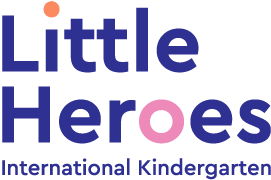Nurturing Mental Health in Early Childhood
At Little Heroes Kindergarten, we understand that the early years of a child's life are crucial for mental health development. The experiences and environments children are exposed to during this period can shape their emotional well-being for years to come. That’s why we take a proactive approach to fostering mental health in our young learners. In this blog post, we’ll explore the importance of mental health in early childhood and share the strategies we use to support and protect it.
Why Mental Health in Early Childhood Matters
Research shows that early childhood is a critical time for brain development. The relationships and experiences children have during these years lay the foundation for their emotional and social well-being. According to the Center on the Developing Child at Harvard University, adverse experiences in early childhood can disrupt this development and lead to mental health challenges later in life (Shonkoff et al., 2012). On the other hand, positive experiences and strong, supportive relationships can promote resilience and long-term mental health.
How We Support Mental Health at Little Heroes Kindergarten
At Little Heroes Kindergarten, our carers and educators are committed to creating a nurturing environment that promotes mental health and prevents issues before they arise. Here are the key strategies we use:
1. Building Secure Attachments
Strong, secure attachments with caregivers are fundamental to a child's mental health. Based on Bowlby’s attachment theory, we know that when children feel safe and supported, they are more likely to develop healthy emotional patterns (Bowlby, 1969). Our educators are dedicated to forming warm, trusting relationships with each child, ensuring they feel valued and understood.
2. Fostering Emotional Literacy
Helping children understand and express their emotions is a key element of our approach. We integrate emotional vocabulary into our daily activities, teaching children to identify and articulate their feelings. Research by Denham and colleagues (2003) highlights that children who can name and talk about their emotions are better equipped to manage them, reducing the risk of frustration and emotional distress.
3. Encouraging Positive Social Connections
Social interactions play a crucial role in mental health. According to Vygotsky’s socio-cultural theory, children learn and develop through social interactions (Vygotsky, 1978). We encourage cooperative play and group activities that help children build friendships, develop empathy, and practice essential social skills.
4. Promoting Physical Activity and Healthy Habits
There is a strong connection between physical health and mental health. Regular physical activity can reduce symptoms of anxiety and depression in children (Penedo & Dahn, 2005). At Little Heroes, we emphasize active play and encourage healthy eating habits, both of which contribute to overall well-being.
5. Creating a Positive and Inclusive Environment
We strive to create a classroom environment that is positive, inclusive, and supportive. Bronfenbrenner’s ecological systems theory suggests that a nurturing environment helps children thrive emotionally and socially (Bronfenbrenner, 1979). By fostering a culture of kindness, respect, and acceptance, we ensure that every child feels they belong and are valued.
6. Engaging Parents and Caregivers
Parents and caregivers play a crucial role in supporting mental health. We maintain regular communication with parents about their child’s emotional and social development, offering resources and strategies to reinforce mental well-being at home. This partnership ensures that children receive consistent support across all environments.
Conclusion
At Little Heroes Kindergarten, we are committed to laying a strong foundation for mental health in early childhood. By focusing on secure attachments, emotional literacy, social connections, and a supportive environment, we aim to help our little heroes develop the resilience and skills they need to navigate life’s challenges with confidence and well-being. Together, we can make a lasting difference in their emotional and mental development.
If you have any questions or would like to learn more about our approach to mental health, please feel free to reach out. We’re here to support you and your little hero every step of the way!

